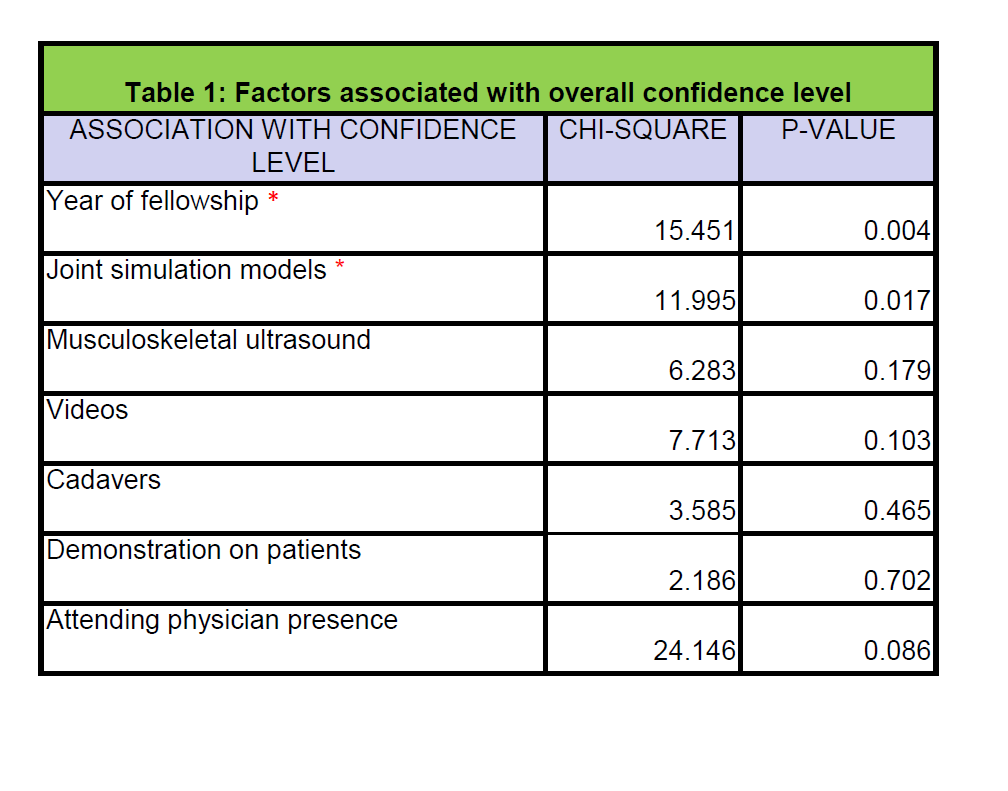Background/Purpose: Rheumatology fellowship programs in the U.S. lack clear standardized criteria to train fellows in joint procedural skills. More recently, some programs are utilizing joint simulated anatomical models (JSM); some are introducing musculoskeletal ultrasound (MSUS) modalities. We sought to determine whether these instructional modalities, and/ or other factors were associated with fellow’s confidence level in procedural skills. The purpose of our study is to determine factors associated with overall level of confidence of rheumatology fellows in the United States, in joint procedural skills.
Methods: An online survey was sent to junior and senior fellows enrolled in rheumatology programs in the United States. Survey included questions pertaining to: fellowship year, training on joint simulated models, training with musculoskeletal ultrasound, other instructional methods employed for procedural skills, attending physician supervision during procedures, number of times 25 individual procedures were performed, fellow’s confidence level in 25 individual procedures and overall confidence level in procedural skills. Statistical analysis including chi-square test and spearman correlation coeffeciency were performed using SPSS10.0.
Results: Data was obtained from 139 respondents: 63 junior and 76 senior fellows. 80 out of 103 accredited fellowship programs responded, so sample was representative of the majority of adult fellowship programs. 39/ 139 (28%) and 50/139 (36%) fellows reported being trained on JSM and MSUS respectively. Factors associated with fellow’s overall confidence level for joint procedural skills are: years of fellowship training and training on joint simulated anatomical models (Table 1.) Confidence levels for individual joints significantly correlated with the number of times procedure had been performed (p<0.01). MSUS training, other instructional modalities, and attending physican supervision were not significantly associated with overall confidence level
Conclusion: Factors associated with higher confidence level of rheumatology fellows in joint procedures include: training on joint simulated models, year of fellowship training and the number of opportunities to perform individual procedures. To improve fellow’s level of confidence and hence improve procedural training, it may be suggested that training authorities encourage use of joint simulated models, and set standarized criteria to ensure adequate exposure for all fellows to procedures thought to be necessary for graduation.
Disclosure:
T. J. Rizvi,
None;
M. Xu,
None;
N. Searle,
None.
« Back to 2012 ACR/ARHP Annual Meeting
ACR Meeting Abstracts - https://acrabstracts.org/abstract/factors-associated-with-confidence-level-of-rheumatology-fellows-in-joint-procedural-skills/

